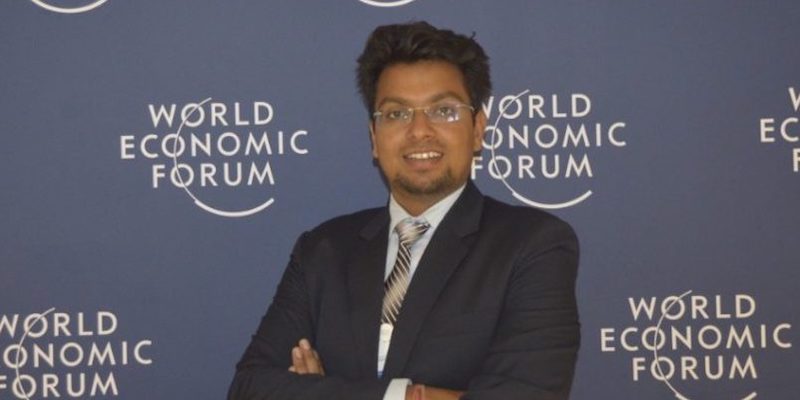How Dehradun Boy’s “Match Box” is saving lives

A tragedy often inspires one to do something that will avoid such tragedies. And that is the story of 25 year old Rajat Jain, Co-Founder of Dehradun-based Sunfox Technologies.
Five years ago, Rajat, an engineering graduate, lost one of his friends, who was only 21 year old, to cardiac arrest. For Rajat, this tragedy was sudden, but it also made him determined to do something so that no other fiend close to him would pass away owing to a cardiac abnormality.
This motivation eventually led him to invent a small ECG machine, accessible to all healthcare facilities, to improve the last mile connectivity in rural areas, and to prevent sudden deaths like that of his friend.
Encouraged by his elder brother Arpit and helped by three other friends (Nitin Chandola, Saurabh Badola, and Sabit Rawat) , Rajat cofounded Sunfox Technologies that has developed ‘Spandan’ – a matchbox-sized portable ECG device that can detect heart abnormalities at an early stage. It costs between Rs 6,500 to Rs 8,000.
Rajat boasts that with the help of Spandan ECG, the Uttarakhand-based startup has screened more than 10,000 patients and has saved about 140 lives owing to early detection.
So much so that even prime minister Narendra Modi has been impressed by it. Twice in television, he has mentioned what he called an incredible invention. This startup venture has also represented India in the World Economic Forum and won several international awards.
Rajat realised that preliminary cardiac monitoring is mostly unavailable at primary healthcare facilities in many parts of India. Even some emergency rooms do not have it, leading to no routine monitoring, lack of routine heart check-ups, and no early diagnosis. “When we talk about remote areas or hilly regions, the condition is even worse. There is no ECG facility available in such places. Patients have to travel at least 20 to 30 km to reach the primary healthcare facilities, and by the time they reach the hospital, they either collapse or suffer complications during the treatment,” says Rajat.
Spandan ECG is a matchbox-sized medical-grade ECG machine which weighs only 12 grams. The brothers claim that Spandan is the smallest, smartest, and the lightest heart monitoring machine that not only detects heart ailments, but also classifies 21 different kinds of heart abnormalities with the accuracy of 99.7 percent in comparison to clinical diagnosis.
Spandan ECG is also equipped with smart algorithms to interpret abnormalities and deliver the results in easy and understandable language for a layman on a smartphone. “We addressed key issues like portability, affordability, availability of expertise at the need of the hour, and came up with this solution which can be accessed by the frontline health workers with minimal expertise and by patients themselves,” adds Rajat.
In the time of coronavirus pandemic, Rajat says that heart diseases are one of the key factors in the mortality rate in the high-risk coronavirus patients. “Patients with underlying CVD and SARS – CoV-2 infection have an adverse prognosis. Therefore, particular attention should be given to cardiovascular protection during treatment for coronavirus,” he adds.
Rajat further says that the startup has upgraded the device with offline capabilities, which means that the Spandan users can identify risks and symptoms offline with their previous medical history and a quick in-app questionnaire.
Rajat also says that, recently, Spandan helped his father in a cardiac abnormality episode at midnight in Uttarakhand during this lockdown period.
Besides upgrading the device, the Sunfox team also developed personal protective equipment (PPEs) and is now working on developing a ventilator for Acute Respiratory Disease Syndrome with pressure and volume controls. “Our company is always driven by frugal engineering methods which could be taken into the essential use,” Rajat says.
So far, Sunfox is one of the beneficiaries of Startup India and has received seed funding from the state government as well. The company works with several non-profit organisations (NGOs) to provide the device in rural and tribal areas in India.



